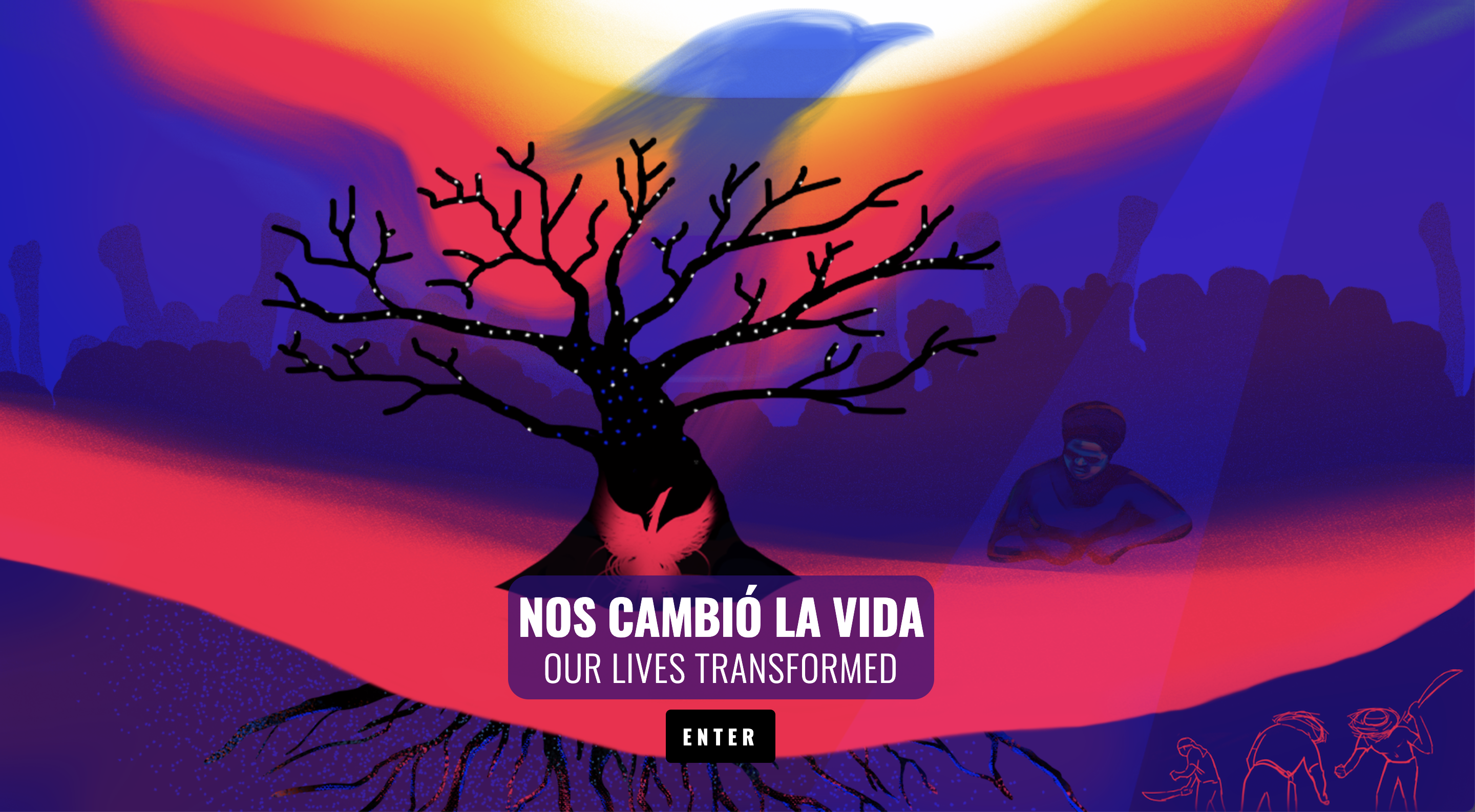On Wednesday, March 23, Miriam Neptune and Alicia Peaker will be presenting Nos Cambió La Vida/Our Lives Transformed: Stories of Statelessness at the Global Digital Humanities Symposium with team members Amarilys Estrella, Ana Belique, Stephanie Holguin, and Rosanny Romilis Jiménez. The project, whose English translation launched on October 8, 2021, is an anthology of memoirs by Dominicans of Haitian descent originally published in 2017 by Reconoci.do, a grassroots movement advocating for the rights of Dominicans of Haitian descent. Reconici.do activist Ana Belique organized storytelling workshops for participants to reflect on how their lives had been impacted by “La Sentencia,” the 2013 Dominican Republic Constitutional Court decision that retroactively revoked birthright citizenship, ruling that children born to non-citizens in the Dominican Republic were not and never had been citizens of the country.
Reconoci.do organized storytelling workshops following the court decision. These workshops culminated in the print publication of the anthology Nos Cambió la Vida in 2017. Going beyond citizenship and statelessness, the writers’ personal stories delve into formative experiences and aspirations, surviving violence, building community, and themes such as pursuing education, work, love, and identity.
In September 2019 the New York-based collective We Are All Dominican began working to translate the anthology into English in the hopes of spreading awareness of the continued challenges for stateless Dominicans, among the Dominican diaspora in the United States. Serving at the time as Director of Teaching, Learning, and Digital Scholarship at BLAIS - Miriam Neptune offered to help by providing the Digital Humanities Center as a resource, giving the project a physical workspace in the center as well as the means to develop a website to host the translated stories. The website was designed to be both accessible and sustainable – easily shareable while also taking up minimal physical server space and loading quickly over mobile networks. Alicia Peaker and Ana Lam (DHC Post-Bacc Fellow, 2020-2021) customized the code for the website, using the lightweight “Ed” theme for Jekyll, developed by Columbia Digital Scholarship Librarian Alex Gil. Student associates at the DHC marked up and edited text, tested the website, and offered feedback at various stages. Customized artwork was created by Santo Domingo-based artist Yaneris Gonzalez (@soygoga).
The collective sought to translate the stories in a way that broke down the distance between the authors and their intended audience, building connections between Dominicans and Haitians by investigating ways that Dominicans and Haitians share a culture in spite of an imposed border and different languages. In order to make their translations more equitable, the translators used a language justice approach to prioritize audience members and people in the translation process whose language was not the dominant language by making the translations accessible, not translating culturally specific terms, and maintaining the voice of the author in the translated stories. They met nearly every Friday for about 10 months, taking turns reading each story out loud in a “table read” format in both Spanish and English until the group felt satisfied with the translation choices.
The translated stories are meant for an imagined audience of family members – that auntie or uncle who may think “Dominicanidad” does not include people of Haitian descent, or people in the diaspora who lack a strong connection to their homeland – as well as students in classrooms. The website acts as an open access resource that puts readers in touch with the lives of people they rarely hear from in published work, who are expressing themselves with courage and a sense of resolve. You can explore the English translation at noscamb.io.
By Miranda Jones-Davidis
